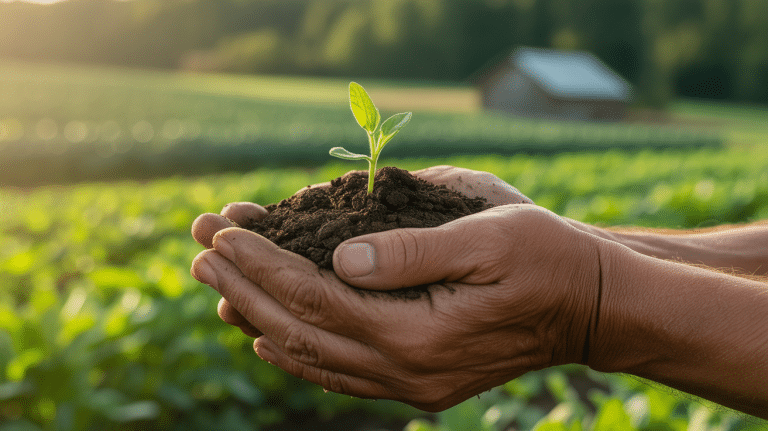Master of Sustainable Agriculture: An In-Depth Guide
What is Master of Sustainable Agriculture?
The Master of Sustainable Agriculture focuses on developing advanced expertise in sustainable agricultural practices. The program addresses global challenges such as climate change, food security, and sustainable resource management. Students engage in a comprehensive curriculum that combines theoretical knowledge with practical application, preparing them to contribute innovatively to contemporary agricultural issues.
The significance of sustainable agriculture has grown in light of increasing global food demands and environmental concerns. This program emphasizes the need for strategies that mitigate climate impact while maximizing food production efficiency and resource conservation.
What Do You Study in Master of Sustainable Agriculture?
Core Subjects
- Sustainable Agriculture Practices: Understanding innovative and sustainable practices in plant and livestock agriculture, including the integration of technology in farming.
- Food Systems and Supply Chains: Analyzing how food production, processing, distribution, and consumption affect sustainability.
- Soil Health Management: Exploring eco-friendly approaches to managing soil and understanding the interdependencies between soil, water, plants, and animal health.
- Environmental Stewardship: Evaluating policies and practices that promote biodiversity and conservation in agricultural settings.
- Community Engagement: Developing skills to engage communities in sustainable agricultural practices which contribute to healthy food environments.
Elective Courses
- Agroecology
- Organic Farming Systems
- Bioenergy and Environmental Sustainability
- Food Policy and Ethics
- Permaculture Design
Labs, Workshops, and Internships
Hands-on experience is a key component of the Master of Sustainable Agriculture. Many programs incorporate:
- Laboratory Work: Courses may include lab components where students engage in hands-on experiments related to soil science, plant pathology, and agricultural technology.
- Workshops: These may focus on practical skills such as sustainable farming techniques, data analysis in agriculture, or policy development.
- Internships: Students often have opportunities to intern with agri-food organizations, government bodies, or non-profits focused on sustainability. These experiences are invaluable for hands-on learning and networking.
Typical Program Structure
Program lengths can vary significantly. Some universities offer full-time programs structured over two years, encompassing both classroom learning and internships. Alternatively, part-time options are often available, accommodating working professionals. Many programs also offer flexible enrollment periods (such as fall, spring, or summer), enabling students to begin their studies at different times throughout the year.
Careers After Master of Sustainable Agriculture
Graduates of a Master of Sustainable Agriculture program can pursue a wide range of career opportunities across various sectors. The need for skilled professionals in sustainable agriculture continues to grow, opening numerous pathways. Typical job titles may include:
- Agronomist
- Agricultural Consultant
- Sustainability Coordinator
- Farm Manager
- Horticulturist
- Environmental Policy Analyst
- Food Systems Planner
- Research Scientist
Industries and Sectors
Graduates can find career opportunities not only in traditional agricultural settings but also in:
- Non-Governmental Organizations (NGOs)
- Government Agencies
- Environmental Advocacy Groups
- Food and Beverage Corporations
- Academic and Research Institutions
- Agricultural Technology Firms
Average Salaries
The salary for professionals in sustainable agriculture can vary based on job title, location, and experience. Here are some average salary ranges:
- Agronomist: $50,000 – $80,000 USD / €45,000 – €70,000 EUR
- Agricultural Consultant: $60,000 – $90,000 USD / €55,000 – €80,000 EUR
- Sustainability Coordinator: $50,000 – $75,000 USD / €45,000 – €65,000 EUR
- Farm Manager: $40,000 – $70,000 USD / €37,000 – €65,000 EUR
- Policy Analyst: $55,000 – $85,000 USD / €50,000 – €75,000 EUR
These estimates may vary based on geographic location, specific sectors, and individual employer practices.
Is Master of Sustainable Agriculture Hard to Study?
The path to earning a Master of Sustainable Agriculture can be demanding, but it is rewarding for dedicated students. Common challenges in the program include:
- Interdisciplinary Integration: Students must bridge knowledge from agriculture, environmental science, and social sciences, which can be complex and require diverse skill sets.
- Fieldwork and Research: Engaging in hands-on learning through internships or field studies can be physically demanding and time-consuming.
- Theoretical Understanding: Grasping advanced concepts of ecology, sustainability, and food systems can be challenging for students new to these topics.
Required Skills
To thrive in this program, students should develop several key skills, including:
- Analytical skills for data interpretation and problem-solving.
- Strong communication abilities for engaging with diverse stakeholders.
- Project management skills to navigate collaborative or research projects.
- A robust understanding of scientific principles related to agriculture.
Preparation Tips
- Study foundational courses: Prior knowledge in foundational agricultural sciences or environmental studies can be beneficial.
- Stay updated on current trends: Following literature and reports on sustainability challenges will enhance classroom discussions.
- Network with professionals: Building relationships in the field can provide insights and guidance throughout the program and into your career.
Top Certifications After Master of Sustainable Agriculture Graduation
While a Master of Sustainable Agriculture provides an excellent educational foundation, several certifications can enhance a graduate’s qualifications and employability. Important credentials include:
- Certified Crop Adviser (CCA): This certification demonstrates proficiency in agricultural crop management practices.
- Sustainable Agriculture Research and Education (SARE): Offers training and resources for sustainable agriculture practices, with certification programs available.
- Food Safety and Quality Assurance certifications: Essential for those pursuing careers in food-related industries.
- LEED Green Associate: Offered by the U.S. Green Building Council, this certification recognizes knowledge of sustainable building practices, applicable to agricultural facilities.
Where to Study Master of Sustainable Agriculture
Students can find reputable Master’s programs in Sustainable Agriculture at various distinguished universities. Here are some notable institutions that offer specialized programs in this field:
These universities provide top-notch coursework and opportunities for hands-on learning that can prepare you for successful careers in sustainable agriculture.
Take the Next Step with Study in Turkiye
Explore various Master of Sustainable Agriculture programs and enhance your educational journey today!



